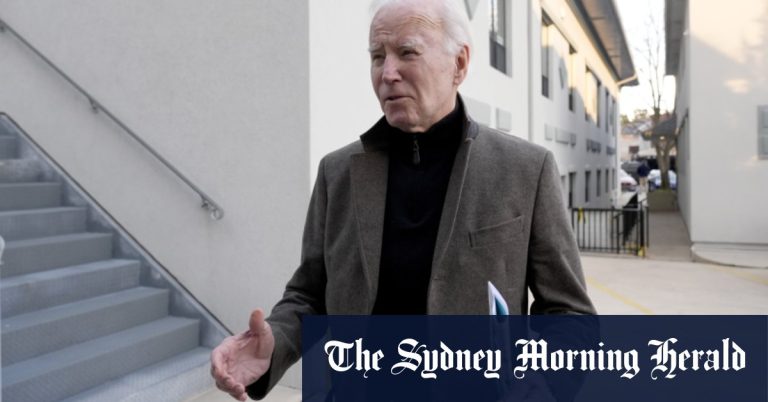Turner said in an interview with Newsweek magazine that the death of opposition activist Alexei Navalny in a Russian prison camp means “we have to be more aggressive in funding Ukraine and passing that in the House and Senate” to honor his legacy. Meet the Press on NBC To air on Sunday (US time).
Turner caused a stir this week when he warned of the threat of Russian anti-satellite weapons, which the White House later described as not a current threat. He brushed aside accusations – including from the Kremlin – that his goal was to drum up support for aid to Ukraine, telling NBC that “it's about Russia and the administration taking action.”

Avdiivka was destroyed by months of fighting between Ukrainian and Russian forces.credit: GT
Biden said that Russia is working to develop an anti-satellite space weapon, but it does not pose a “nuclear threat” to those on Earth. In reality, Biden said, it may never move forward.
“We have discovered that there is the ability to launch a system into space that could theoretically do something harmful. That has not happened yet,” Biden said. “And my expectations — my hope — were not like that.”
While the threat was not as immediate as the initial scare suggested, the Russian ambition highlights what security experts and the U.S. government say is growing competition between the United States, Russia and China to develop strike and counterattack capabilities in space.
The Ukrainian military said earlier Saturday it was withdrawing from Avdiivka, the same day Zelensky addressed the annual conference of military and foreign policy leaders in Munich. He told the meeting that Ukraine was withdrawing to save lives.
Zelensky renewed his appeals to the allies to arm Ukraine, saying that Russian President Vladimir Putin was reaping the advantage.
He said at the Munich Security Conference, where he met on Saturday with US Vice President Kamala Harris, that “keeping Ukraine in an artificial deficit in artillery and long-range weapons allows Putin to adapt to the severity of the current war.”
Ukraine is suffering from a shortage of military supplies as Russian forces continue their offensive at a time of uncertainty about US aid. Zelensky changed his military leadership last week as Russia's large-scale invasion approaches its third year.
Avdiivka, a satellite industrial city just north of Donetsk — a regional capital under de facto Kremlin control since 2014 — has been subject to bombing and heavy fighting since the spring of 2022.
The loss of the city, which was previously inhabited by 30,000 people, increases the problems facing Ukraine's political and military leadership, which is also suffering from a shortage of soldiers and war fatigue.
The Kremlin made Avdiivka a priority in a year in which neither side was expected to make significant strategic gains on the battlefield, according to Western officials who spoke on condition of anonymity. The last time control over large areas of territory in Ukraine changed was more than a year ago, when Ukrainian forces liberated part of the Kherson region.
European officials, who recently approved an aid package worth more than $50 billion for Ukraine, are increasingly concerned about the delay in Washington.
Bloomberg

